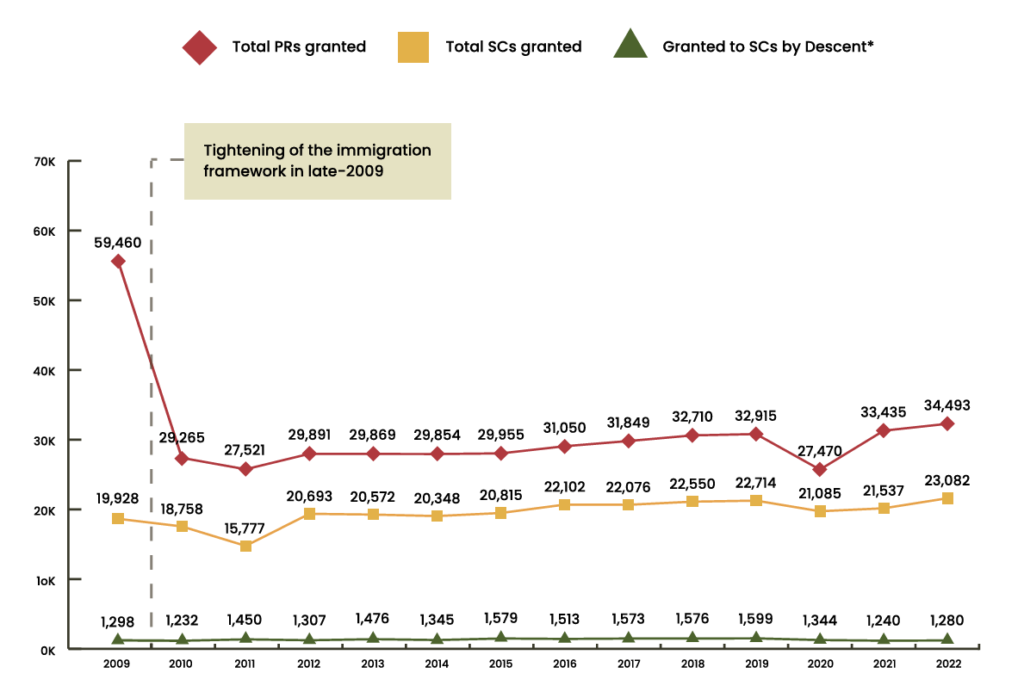
Applying for Singapore Permanent Residency (PR) is an aspiration for many foreign talents seeking stability and long-term opportunities in this vibrant city-state. Singapore, known for its robust economy, multicultural society, and high standard of living, attracts numerous individuals seeking long-term residency. However, the path to securing PR status is fraught with challenges, particularly when attempting to go it alone.
The Singapore PR application process is rigorous, designed to evaluate the suitability of applicants in contributing positively to the nation. It requires comprehensive documentation and a clear understanding of the eligibility criteria set forth by the Immigration and Checkpoints Authority (ICA).
Becoming a PR in Singapore offers foreign talent numerous advantages:
These benefits make obtaining PR status a highly sought-after goal for many expatriates.
The first hurdle many applicants face is deciphering the complex eligibility criteria. Singapore’s Immigration and Checkpoints Authority (ICA) assesses applications based on various factors, including qualifications, employment status, and income levels.
For example, the Professionals/Technical Personnel & Skilled Worker (PTS) scheme requires applicants to hold an Employment Pass or S Pass. However, Work Permit holders are generally excluded unless married to a Singapore Citizen or PR. Navigating these criteria can be daunting without expert guidance.
According to the ICA, only about 22% out of 150,000 applications are successful annually, highlighting the competitive nature of this process.


Starting from 2025,

Even with eligibility met, applicants often face high rejection rates due to stringent standards and a competitive pool. It’s not uncommon for strong professional backgrounds to be insufficient if profiles don’t align with ICA’s holistic assessment criteria, including age, financial status, social integration, and family ties in Singapore.

The Singapore Population Brief 2023 shows a decline in PR approvals, largely due to tightened immigration frameworks post-2009, leading to a high rejection rate.
The PR application process requires extensive documentation. Missing, incorrect, or low-quality documents can lead to delays or rejection.
Applicants must submit notarized copies of diplomas, tax assessments, and employment letters, among others, all of which need to be meticulously prepared. Starting from June 2024, the ICA has made it mandatory for all forms to be filled out online, increasing the complexity further.
The prolonged processing times for PR applications, often spanning six months to a year or more, add stress and uncertainty. Without professional guidance, applicants might find it challenging to plan their future in Singapore amidst this uncertainty. The ICA states processing times can extend beyond six months, depending on the case specifics.
Given these hurdles, seeking professional assistance can be invaluable. Professionals specializing in PR applications offer:
Applying for Singapore PR is a challenging endeavor, especially when navigating the process independently. For foreign talents considering this path, thorough preparation is key. While it is possible to succeed alone, the benefits of professional assistance can often outweigh the costs, offering peace of mind and a higher probability of success.
Before embarking on your application journey, weigh your options carefully. Whether you choose to apply independently or seek professional help, ensure that you have all the necessary resources and support to make your PR dream a reality.
Contact us to get started!

The Immigration Consultancy Firm Of Choice For Over Thousands Applicants.